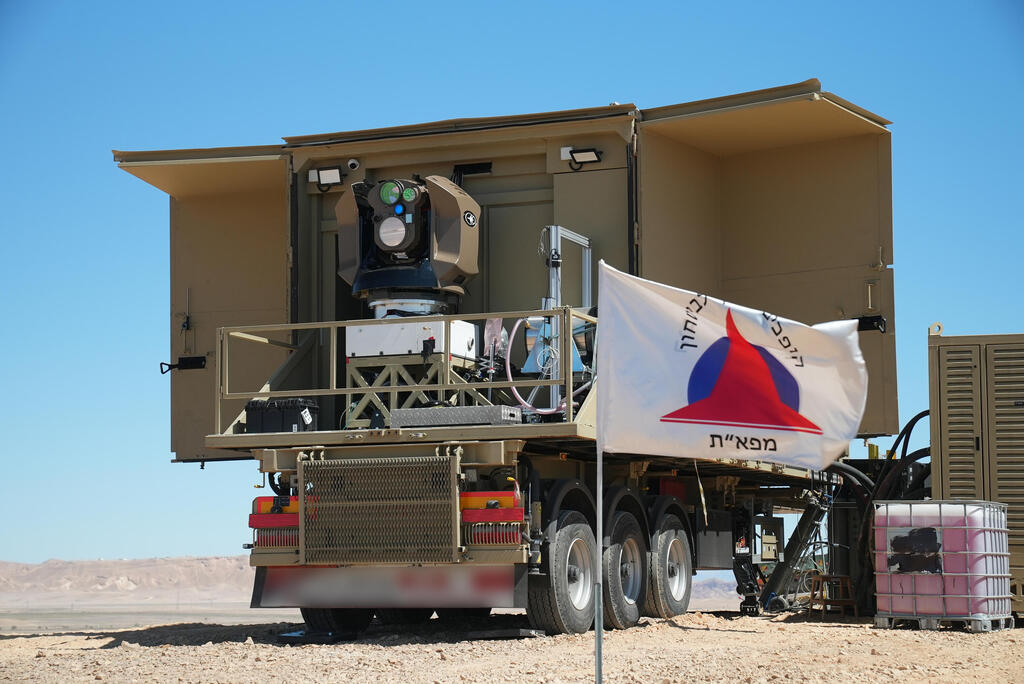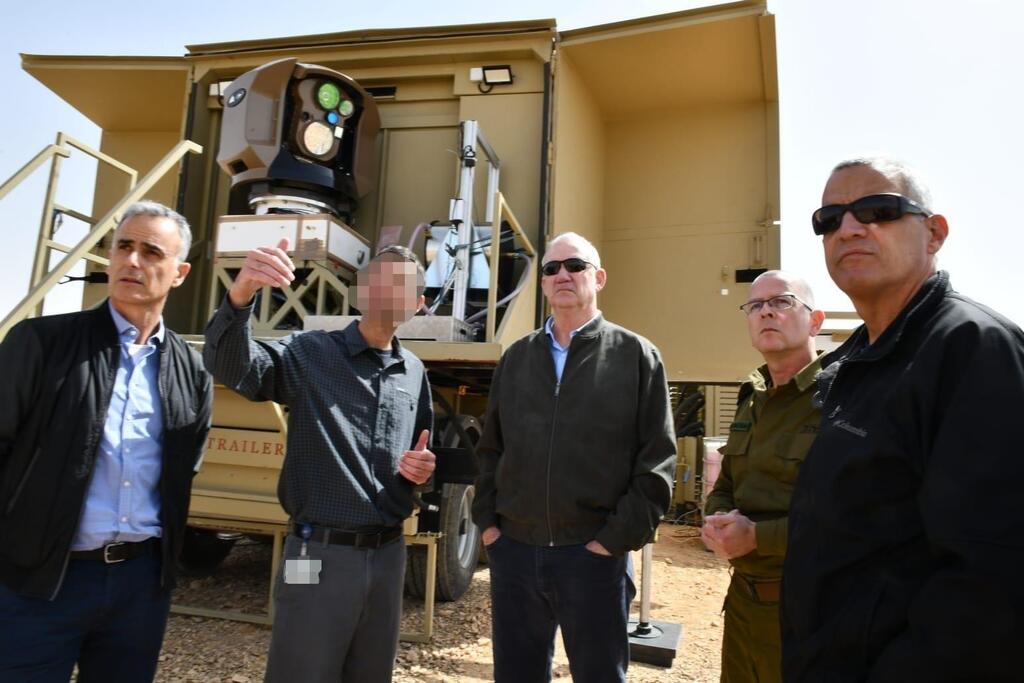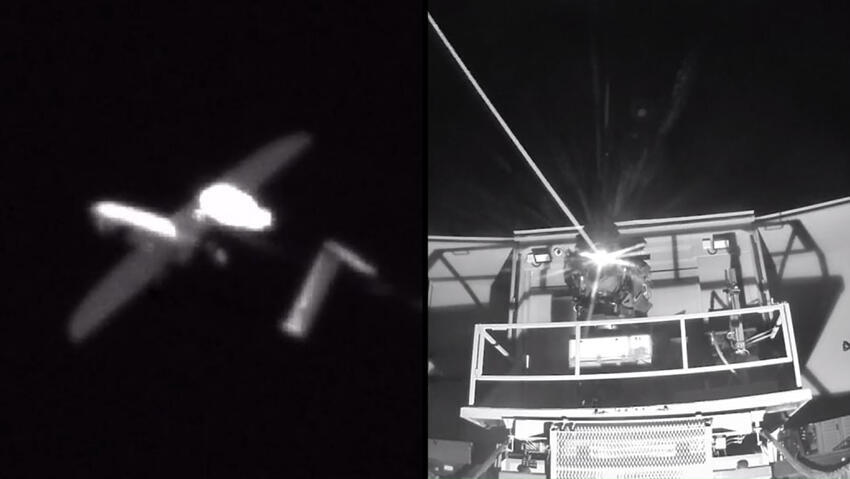Getting your Trinity Audio player ready...
The Defense Ministry announced on Thursday that it successfully tested a high-powered laser defense system able to intercept missiles, drones, mortars, and anti-tank rockets in the first in a series of tests.
The system was developed by Rafael Advanced Defense Systems which will supply it to the Israeli Air Force with the very first laser launchers.
Defense Minister Benny Gantz who was present at some of the experiments said this achievement is a huge contribution to Israel's security.
"The Iron Beam system is a game-changer. We are able to significantly improve our defense capabilities, while also making it economically viable. It will take time until this kind of technology will become operational, but we are definitely on the right course to success," Gantz said.
(The 'Iron Beam' defense system)
The next stage will be a laser system for ground troops and the air force able to be used as a weapon.
The laser beam defense system was first tested against targets on the ground. Later stages tested its ability to intercept projectiles such as missiles and drones, in the air and day by day the system was tweaked and improved to make it more accurate.
The system is less effective in foggy or cloudy weather conditions, due to the need for a direct line of sight between the laser beam transmitter and the target, and that is a drawback.
At the end of the development process, the system will be relatively simple to use, as it will be mounted on two trucks with a launcher that will be attached to an external radar, a generator, and an operating caravan.
3 View gallery


The experimental high-end, 'Iron Beam' laser-based rocket defense system
(Photo: Defense Ministry Spokesperson)
Since this is the first time that any fighting force will use laser-based systems as weapons, the Defense Ministry, the IDF, and Rafael are currently writing the activation protocol and safety manual for the system in order to make it operational.
The system will first compliment the Iron Dome missile defense system but may take a leading role in Israel's multilayered air defenses, which also include David's Sling, and Arrow 2 and 3 missile systems.
The Defense Ministry and Rafael conducted simulation of missile attacks based on the May 2021 fighting against Hamas.
When operational, it will free the more expensive Iron Dome batteries for more strategic missions, including the threat of missile fire from Lebanon and Syria.
3 View gallery


Defense Minister Benny Gantz attends the Iron Beam experiments
(Photo: Defense Ministry)
Israel's defense industries, have invested so far more than NIS one billion in the project. And in the interest of continuing the development, the country intends to appeal to its allies across the globe and in the region, perhaps the Gulf States, to participate in the project and to finance its completion.
This is part of the regional defense alliance that Israel has formed and strengthened in recent months, with some Arab states in the region, in the interest of defense against Iranian threats.


